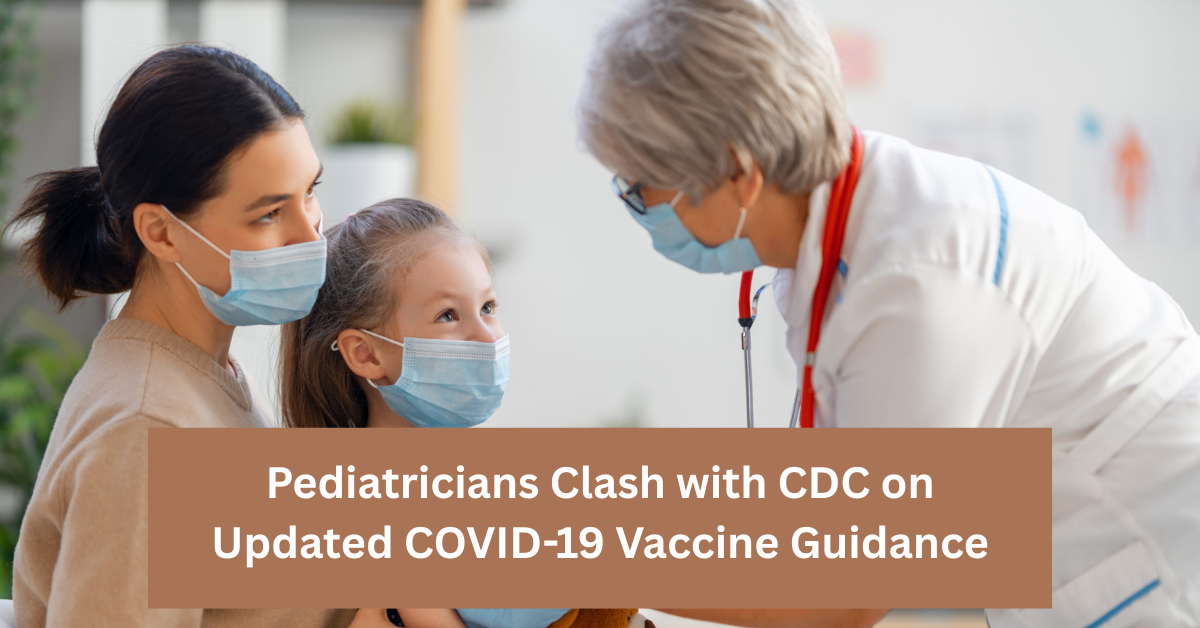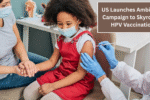The ongoing battle against COVID-19 has reached a new stage with updated vaccine guidelines released by the Centers for Disease Control and Prevention (CDC). While these guidelines aim to protect communities and especially vulnerable groups, there has been a surprising backlash from pediatricians. These healthcare professionals, responsible for children’s health and safety, are voicing serious concerns about the latest recommendations for vaccinating young children.
This growing disagreement between frontline doctors and a powerful federal agency has left parents, caregivers, and educators searching for clear answers. Understanding the perspectives on both sides is crucial for making informed decisions about vaccinating children during a critical time in public health.
What Are the CDC’s Updated COVID-19 Vaccine Guidelines for Children?
The CDC recently revised its recommendations regarding COVID-19 vaccination schedules and booster doses for children aged six months to five years. The changes include streamlined dosing to simplify the process, adjusted booster eligibility criteria, and new guidance based on recent data about variant transmissibility and effectiveness of the vaccines.
The primary goal outlined by the CDC is to expand vaccination coverage among young children who are considered at risk for severe COVID-19 outcomes, while balancing safety and vaccine availability. According to the CDC, the updated guidelines emphasize flexibility in dosing intervals and encourage booster shots after completing the initial vaccine series.
Why Pediatricians Are Questioning the New Guidance
Many pediatricians argue that the updated CDC recommendations may not sufficiently account for the specific health needs and immune responses of young children. Some concerns include uncertainties about optimal dosing intervals, potential side effects, and whether the vaccines adequately protect against the dominant variants circulating in communities.
Specialists also caution against rolling out booster doses too rapidly in this age group without more comprehensive safety data. They stress the importance of individualized care approaches and urge parents to discuss vaccination choices with their child’s pediatrician rather than relying solely on generalized federal guidelines.
Community and Parental Reactions to the Vaccine Controversy
The disagreement has sparked intense discussions among parents and community leaders who look to pediatricians as trusted sources of medical advice. Some parents express hesitation about following the CDC’s latest recommendations, highlighting fears related to vaccine safety, side effects, and long-term impacts on children’s development.
Conversely, other families feel reassured by the CDC’s efforts to enhance protection against COVID-19 through updated vaccinations, emphasizing the benefits especially in high-risk children or those with underlying conditions. This divide underscores the complexity of navigating health decisions in a rapidly evolving pandemic landscape.
Understanding the Science Behind Pediatric COVID-19 Vaccines
COVID-19 vaccines for children are specifically formulated based on clinical trials that measure safety, efficacy, and immune responses unique to different age groups. Young children’s immune systems react differently than adults’, which requires tailored vaccine doses and timing.
The vaccines have been shown to reduce the risk of severe illness, hospitalization, and complications related to COVID-19 in children. Nevertheless, questions remain about how frequently booster doses should be given and their exact effectiveness against emerging variants, prompting ongoing research and updates to guidance.
How the Updated CDC Recommendations Differ from Previous Guidance
| Aspect | Previous CDC Guidance | Updated CDC Guidance |
|---|---|---|
| Dosing Interval | Longer interval between primary doses | Shortened interval to increase booster uptake |
| Booster Eligibility | Booster recommended mostly for older children | Expanded eligibility to children as young as six months |
| Vaccine Type | Initial vaccine brands and formulations | Inclusion of updated vaccines targeting variants |
This table highlights key updates that intend to enhance protection against COVID-19 while attempting to make vaccination more accessible for younger patients. However, these changes also present new challenges that pediatricians must weigh carefully.
The Risks and Benefits of Vaccinating Young Children Against COVID-19
Vaccinating young children carries specific risks and benefits that must be balanced. Benefits include reducing the likelihood of severe COVID-19 infections, minimizing disruptions to education and social activities, and contributing to broader community immunity.
On the risk side, concerns revolve around adverse reactions, though serious side effects are rare. Pediatricians highlight the need for ongoing monitoring and clear communication with parents about any potential concerns. Ultimately, an informed decision helps ensure children receive the best individualized care.
Expert Opinions and Calls for Further Research
Leading pediatric experts urge caution and emphasize that more research is necessary to fully understand the long-term impacts of COVID-19 vaccination in young children. They call for additional studies to clarify optimal dosing strategies, booster effectiveness, and vaccine safety among diverse pediatric populations.
These experts recommend regular updates to vaccination protocols based on emerging scientific evidence and real-world effectiveness data. Transparent communication between health authorities, pediatricians, and parents is critical to maintaining trust throughout this ongoing process.
Tips for Parents Navigating the Vaccine Decision for Their Children
Parents facing the decision of whether or not to vaccinate their young children should consider several important factors. First, consult with your child’s pediatrician to discuss any specific health concerns and get personalized advice. Reliable, evidence-based information from trusted medical professionals should be prioritized over social media rumors or unverified claims.
Stay informed about the latest CDC updates but balance this with attention to your child’s unique health needs. Monitoring your child’s response to vaccination and promptly reporting any unusual symptoms to healthcare providers will also contribute to safer outcomes.
The Future of Pediatric COVID-19 Vaccination Policy
As the pandemic evolves, pediatric COVID-19 vaccination policies will continue to be revisited and revised. Advances in vaccine technology, emerging virus variants, and accumulated clinical experience will all influence future guidance. Pediatricians and public health agencies need to maintain open dialogue to reconcile differing viewpoints and best protect the health of children nationwide.
Parents and caregivers play an essential role in this dynamic process by staying engaged, asking questions, and cooperating with healthcare providers. The goal remains clear—to safeguard the health and well-being of children during these unprecedented times with accurate knowledge and compassionate care.




